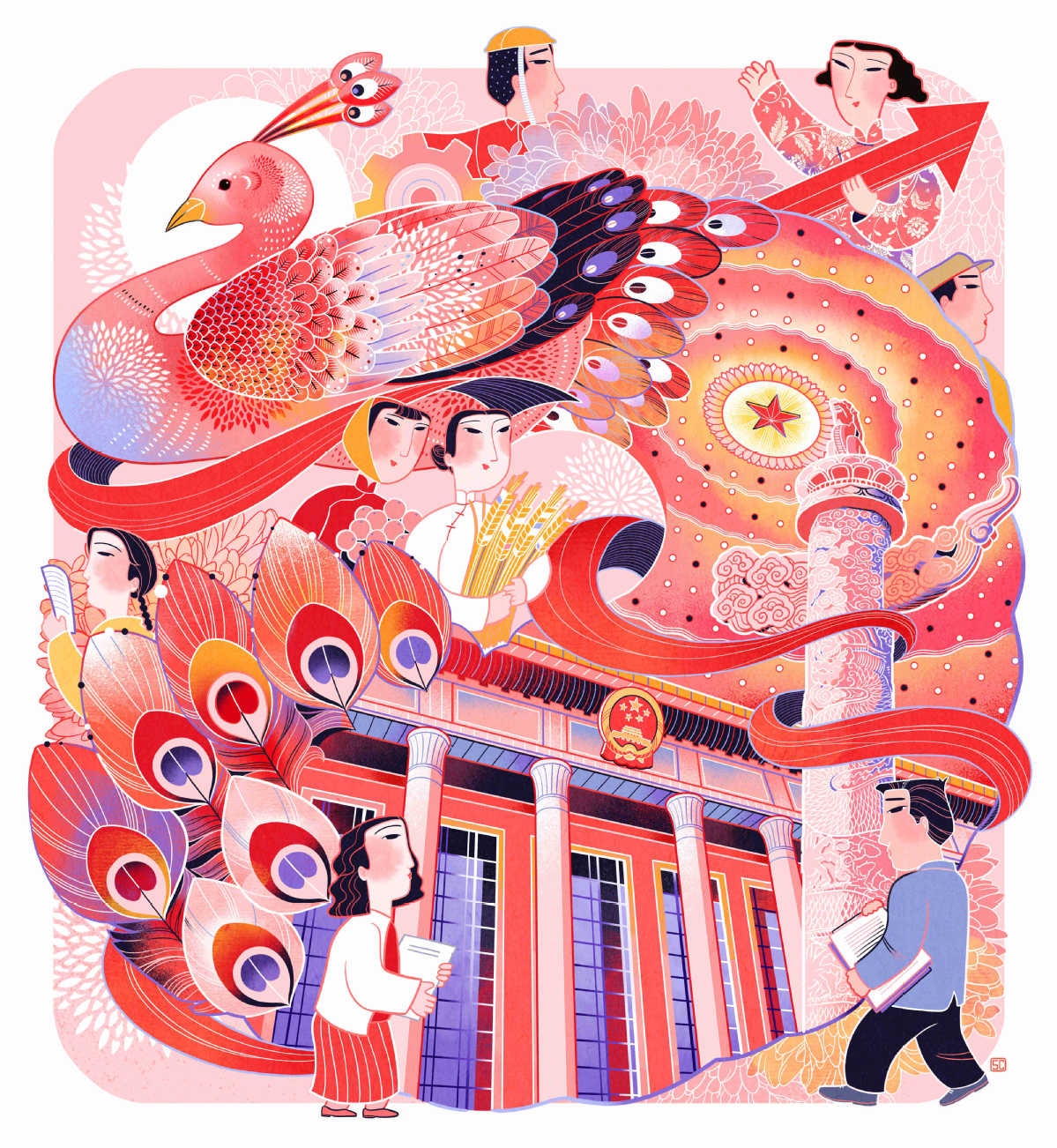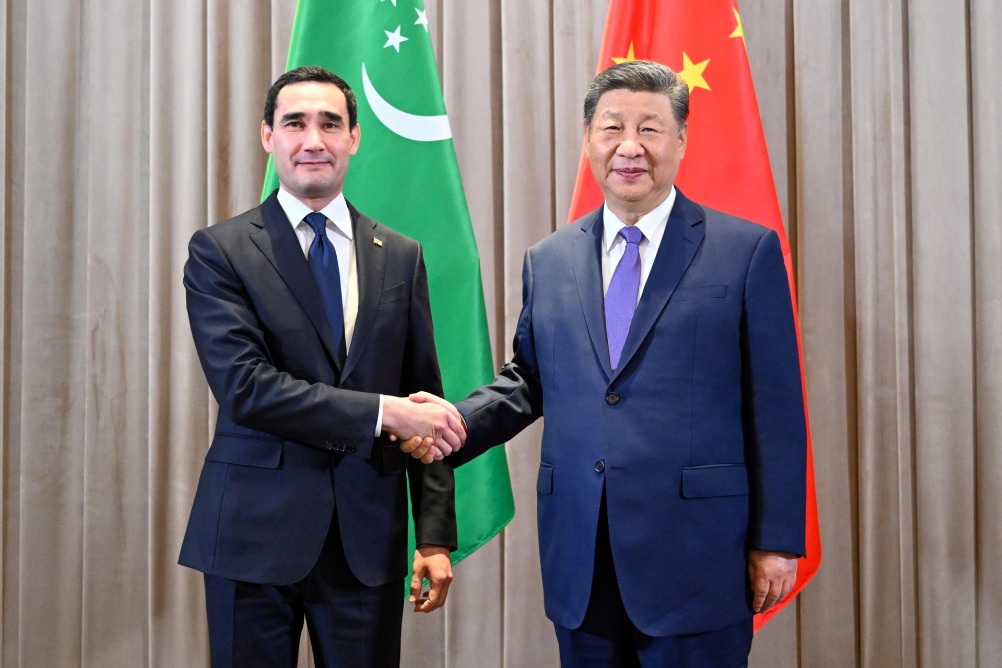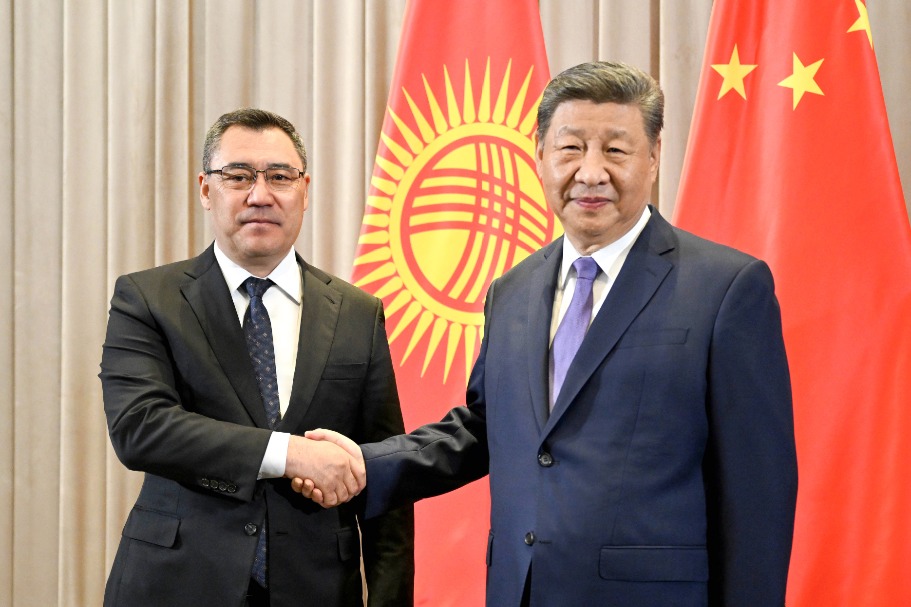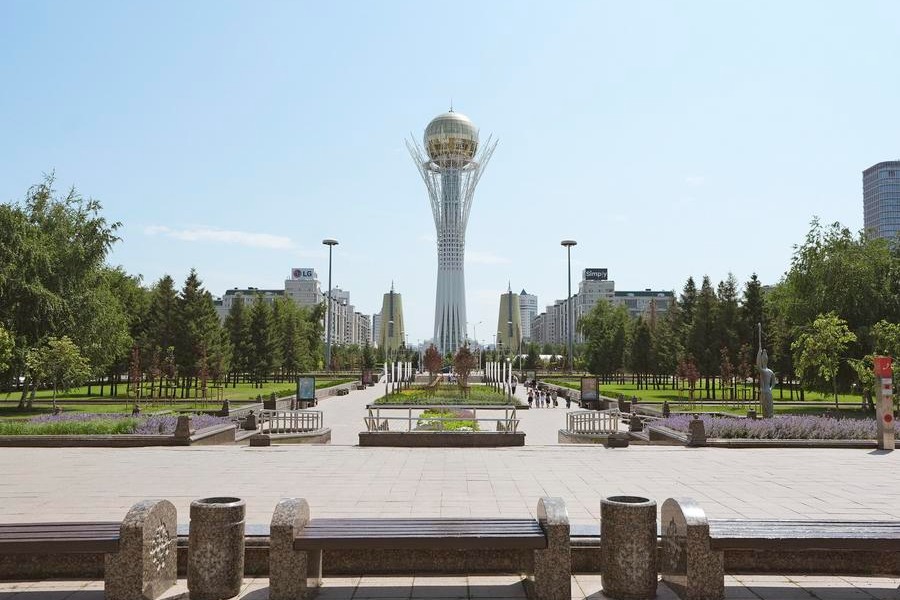Intra-Party polls reflect democracy


The Communist Party of China attaches great importance to intra-Party elections, which are based on five factors. First, intra-Party elections follow the principle of democratic centralism — a fundamental organizational principle of the Party. The Party decided that democratic centralism would be the golden rule for intra-Party elections and democracy after the Red Army reached Yan'an, Shaanxi province, at the end of the Long March in 1935.
Second, the Party accords great importance to elections in primary-level Party organizations. Since the launch of reform and opening-up in 1978, primary-level Party organizations have improved their practices and institutions. And the 19th National Congress of the CPC in 2017 saw the Party reiterating that the term for Party committees at the village and community levels will also be five years in sync with primary-level Party organizations' elections every five years.
Third, in the election of delegates to Party congresses, priority is given to the candidates' competence and honesty. Local Party congresses are convened by the Party committees at the corresponding level, and the number of delegates to the local Party congresses at any level and the procedure governing their election are determined by the Party committees at the corresponding levels, with the decision being reported to the immediately higher Party committees. That's why electing the right delegates — that is, those with moral integrity and high reasoning and communication skills — to the Party congresses is important.
For the election of delegates, the Party branch of an election unit, according to the allocated quota, starts the nomination of candidates based on the consensus reached by a majority of Party groups or members. After that, the election units conduct preliminary verification of the candidates, followed by a meeting among Party committee members to finalize the list of the candidates and report to the corresponding Party committees for further scrutiny and review of the candidates' work and political integrity and competence.
The requirements for the election of delegates to the National Congress are even more stringent. A total of 2,296 delegates have been elected to attend the ongoing 20th National Congress. The electoral work, which took place from November through July, was organized by 38 electoral units, including provincial-level regions, central authorities, the central financial sector, and centrally administered State-owned enterprises based in Beijing.
Fourth, elections in local Party organizations, which are getting increasingly institutionalized, are an important way of reinforcing the Party's political institutions and inner-Party democracy.
After the 18th Party Congress in 2012, the CPC Central Committee specified that the number of candidates should be at least 10 percent more than the delegate quota for the competitive elections of permanent and alternate members of the Party committees and members of the discipline inspection commissions. And the number of candidates for the election to the standing committees should be at least one or two more than the number of candidates to be elected, and the candidates for alternate members of Party committees should not be less than 15 percent of all members.
At the end of 2020, the CPC Central Committee promulgated the Regulations of the CPC on the Elections of Local Party Organizations, saying the elections of delegates to the Party congresses, and permanent and alternate members of the Party committees, and members of the standing committees of the Party's local units, as well as members of the standing committees of discipline inspection commissions should be competitive.
Fifth, worthy delegates to the CPC Central Committee are selected through both single-candidate and competitive election. While individual Party members are subordinate to the Party organization, the minority is subordinate to the majority, the lower Party organizations are subordinate to the higher Party organizations, and all the constituent organizations and members of the Party are subordinate to the National Congress and the Central Committee of the Party.
The Party's leading bodies at all levels are elected except for the representative organs dispatched by them and the leading Party members' groups in non-Party organizations. And the highest leading bodies of the Party are the National Congress and the Central Committee elected by it. The members of the Central Committee are elected by delegates to the National Congress by secret ballot, while the list of candidates is deliberated and discussed by Party organizations and confirmed through secret ballot.
Since the 13th Party Congress, the elections of members and alternate members of the CPC Central Committee and Central Commission for Discipline Inspection have become competitive.
To elect the members of the CPC Central Committee, the Standing Committee of the Political Bureau decided at a meeting in February 2016 to establish a leading group with the CPC Central Committee general secretary as the top reviewer of cadres to be promoted to the CPC Central Committee and the Central Commission for Discipline Inspection.
From July 2016 to June 2017, the group set up 46 task forces to review cadres from 124 central Party and government institutions, national financial enterprises, centrally administered State-owned enterprises in Beijing and other institutions in 31 provincial-level regions.
Instead of holding mass meetings and simple questionnaires, the task forces have held in-depth discussions with all relevant parties to gain more comprehensive knowledge of the cadres. Through these discussions, some cadres were recommended or selected for more important positions while the Party appreciated the performance of others.
The Party's electoral system not only safeguards the democratic rights of Party members but also ensures the views and wishes of Party organizations at different levels are heard. As Daniel A. Bell, a Canadian scholar, said, it is the system of intra-Party elections that produces political elites with outstanding political accomplishments and governance capability.
Intra-Party elections, featuring "organizational screening and democratic election", embody democratic centralism and help the Party assign the right people in the right position.
The views don't necessarily reflect those of China Daily.
The author is an associate professor at the Department of Teaching and Research of Politics and Law, Party School of the Central Committee of CPC, and a research fellow at the Digital Governance Research Center of Tsinghua University.
































